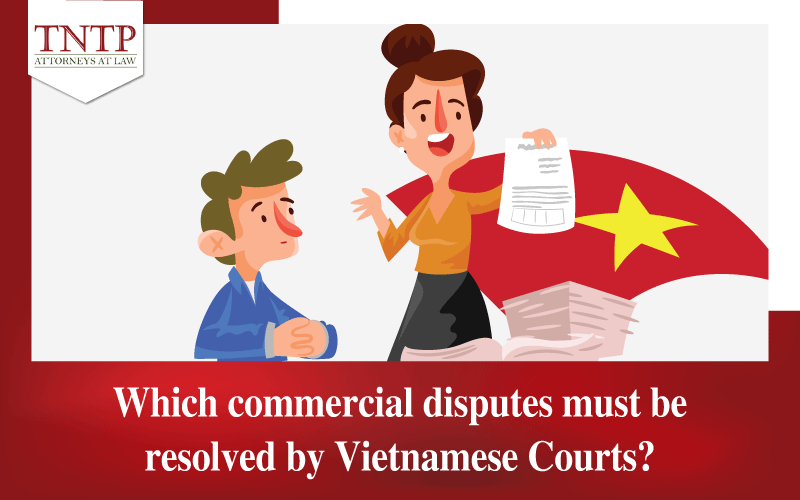File a cassation and Appeal against decisions to recognize and enforce foreign Arbitral Awards in Vietnam
Resolving commercial disputes by arbitration method has become an on-going trend in Vietnam worldwide due to its advantages of flexibility, time-saving, and high confidentiality. For the Foreign Arbitral Award to be recognized and enforced in Vietnam (for the award debtor being a Vietnamese legal entity), there must be a decision to recognize and enforce that Award in Vietnam by a competent Court of Vietnam. However, the decision to recognize and enforce the Arbitral Award of the country can still be appealed or requested a cassation. There are many issues on this topic that legal entities do not clearly understand, so in this article, TNTP’s lawyers will clarify the appeals against the decision to recognize and enforce a foreign Arbitral Award in Vietnam.
1. What is appeal?
Although Vietnamese legal documents do not have a specific definition of Appeals, based on the provisions on the right to appeal and the procedures for appeals in Vietnamese legal documents, we can understand Appeals as follows:
• Appeal is understood as the person with the right to appeal expressing his/her disagreement with part or all of the decisions of the Court in the judgment or decision of the first instance and requesting the Court of Appeal to review that judgment or decision.
• Cassation is a procedural act of a competent person, expressing opposition to all or part of a judgment or decision of the Court with the aim of ensuring an accurate and fair trial, and at the same time correcting errors in the judgment or decision of the Court.
Thus, it can be seen that Appeal and Cassation are the rights of the litigants and the Procuracy to request the immediate superior Court to review the decision of the Court according to the provisions of the Civil Procedure Code.
2. Regulations on appeals and cassation against Court decisions on recognition and enforcement of foreign Arbitral Awards in Vietnam
a) Time limit:
Within 15 days from the date the Court issues a decision to recognize and enforce or not to recognize in Vietnam a foreign Arbitral Award under the provisions of the Civil Procedure Code 2015, the involved parties and their legal representatives have the right to appeal against that decision. In case the involved parties are not present at the hearing to consider the application, the appeal period shall be calculated from the date they receive the decision. The appeal must clearly state the reasons and requests for appeal.
b) About the process:
(i) The People’s High Court shall re-consider the decision of the People’s Court of province which is appealed against within 01 month from the day on which the documents are received; if explanation is required as prescribed in clause 1 Article 457 of the Civil Procedure Code 2015, such time limit shall be extended for not exceeding 02 months.
(ii) The session to review the appealed or cassation decision shall be conducted as follows:
• The meeting shall be conducted in the presence of the judgment creditors, judgment debtors or their legal representatives; if any of them is absent for the first time with plausible reasons, the meeting must be postponed.
• The meeting shall still proceed if the judgment creditors or their legal representatives, or the judgment debtors or their legal representatives have filed their applications to the Courts to proceed in their absence or if their lawful representatives have been duly summoned twice but are still absent.
• When considering the application for recognition and enforcement, the Panel shall not conduct re-trial over the Foreign Arbitral Award. The Court shall be only entitled to check and compare the Foreign Arbitral Award and all the documents related to the application with provisions of the Civil Procedure Code 2015, other relevant Vietnam’s law provisions and International treaties to which the Socialist Republic of Vietnam is a signatory to form the basis for the issuance of decision to recognize and enforce such Award.
(iii) Consideration of appeals:
• The Panel considering the decision being appealed against shall terminate the processing of an appeal in the following cases:
– The parties withdraws wholly his/her appeal or the procuracy withdraws wholly its appeal; or
– The parties filing the appeal has been duly summoned twice but is still absent without an application for resolution in his/her absence.
Note that the time when the involved party filing appeal withdraws wholly his/her appeal or the Procuracy withdraws wholly its appeal before or after the Court of Appeal issues a decision to open a session, and the presiding judge or the Appeals and appeal consideration Panel will make different decisions depending on each case. Specifically, if it is before the session opens, the presiding judge will make a decision to suspend the appeal and cassation; if it is after the session opens: the Appeals and appeal consideration Panel will make a decision to suspend the appeal and cassation.
(iv) The decision of People’s High Court shall take legal effect from the day on which it is issued and may be appealed according to cassation or reopening procedures according to provisions of the Civil Procedure Code 2015.
Thus, appeal and cassation are procedural acts for the entitled person and the competent person prescribed by law to fully ensure the wishes and opinion of the person entitled to appeal; as well as to limit errors that may be overlooked by the competent person who can file a cassation against the Court’s decision to recognize and enforce or not recognize the Foreign Arbitral Award in Vietnam.
Above is an article by lawyer TNTP on the topic: “File a cassation and Appeal against decisions to recognize and enforce foreign Arbitral Awards in Vietnam”. Hope this article will help readers in work and life.
Sincerely,



